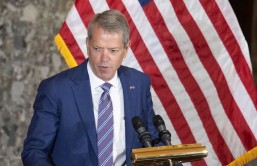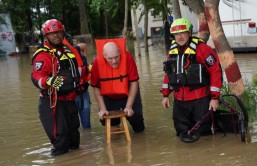Cocaine, and other such "party drugs" have become an issue in the NHL, as laid out in this report from TSN's Rick Westhead, published in Oct. Speaking with NHL deputy commissioner Bill Daly, Westhead learned that the number of cocaine "positives" are up to a greater point than they have ever been. While Daly declined to dub the issue a "crisis," it does seem that he and the rest of the league's decision-makers have determined that extra efforts must be made in order to ensure that drugs become - or, in some instances, remain - an issue for players.
Renaud Lavoie of TVA reported Monday that the NHL is planning to implement cocaine testing as part of its drug testing regimen by the end of the season, should everything go "according to plan."
All the NHL drug-testing should include cocaine test by the end of the season if everything is going according to plan. Nothing finalize yet
— Renaud Lavoie (@renlavoietva) November 23, 2015
Per Lavoie, positive tests for cocaine won't result in a suspension, but will instead lead to league-mandated help via the NHL and NHLPA's substance abuse program.
If a player test positive to cocaine, they'll be no suspension, but help will be given with the substance abuse program of the NHL and PA. — Renaud Lavoie (@renlavoietva) November 23, 2015
Suspensions would come as part of the program's Stage 2.
Only suspension is if a player needs to go to Stage 2 of the joint substance program. But like I said, nothing finalize yet.
— Renaud Lavoie (@renlavoietva) November 23, 2015
Substance abuse in and around the NHL has certainly become a hot topic in recent months. This summer, former Los Angeles King Jarret Stoll was arrested in Las Vegas and charged with possession of cocaine. Former NHL player Ryan Malone was arrested in April 2014 when he was a member of the Tampa Bay Lightning for possession of cocaine and driving under the influence. Just this offseason, Mike Richards, another King, had his contract terminated after it was learned that he had been arrested at a U.S.-Canadian border crossing while in illegal possession of opioid painkillers.
Viktor Loov, a Toronto Maple Leafs prospect, told LT, a Swedish news outlet, that there was "a lot of cocaine" in the NHL.
These instances, while circumstantial at best, seem to point to a larger issues for the league in light of Westhead's report from earlier this year.
"One-third of the 2,400 player urine samples collected each year are screened more closely for drugs of abuse, such as cocaine. Those more comprehensive tests have shown cocaine use by NHL players is on the rise."
From the sounds of things, Daly and NHLPA executive director Donald Fehr are committed to seeing those numbers go down. The success of the players - and the game - likely depends on their success.








